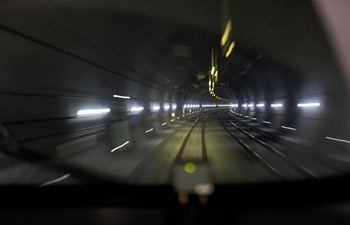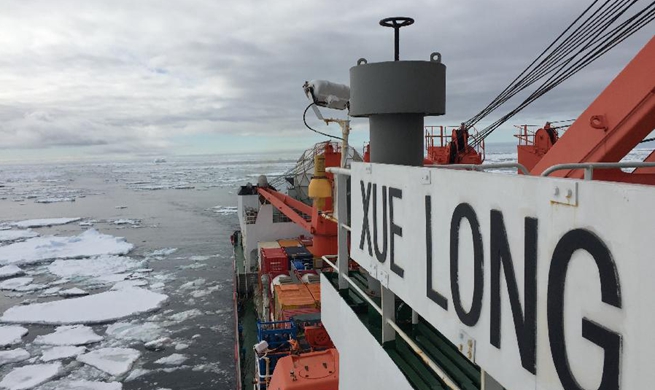NICOSIA, Nov. 25 (Xinhua) -- Four Mediterranean countries, Cyprus, Greece, Italy and Israel are close to an agreement to construct the world's longest undersea pipeline to transfer natural gas from the eastern Mediterranean energy fields to Europe, a Cypriot government source was quoted as saying on Sunday.
"An agreement is expected to be reached soon among the countries involved in the project. After the deal is concluded, it will take about five weeks for its provisions to be examined by the European Union", the government source told Cyprus state broadcaster.
The source was commenting on a report by an Israeli newspaper which said that the deal has already been struck.
The Cypriot government source said that Cyprus is also looking into all possible alternatives.
"A lot will depend on the results of the drilling of ExxonMobil that is currently underway", the source added.
The European Union has funded a 100 million euro (113 million U.S. dollars) feasibility study and has voiced its backing to the project.
The drilling is carried out by ExxonMobil in association with Qatar petroleum in Cyprus' offshore block 10, within the island's exclusive economic zone,some 95 nautical miles off its south shores.
The consortium has planned two more drillings after the current one, also within Cypriot block 10.
One of the alternatives Cyprus is examining is building a two-train liquefaction plant, a much more expensive project of 10 billion euros, compared to a cost of up to 6.2 billion euros for the building of the pipeline.
A possible discovery of a sizeable gas field will boost Cyprus' plans for a liquefaction plant along with its participation in the East Med project.
Cyprus has discovered two gas fields of a total capacity of 10 to 12 trillion cubic feet of natural gas. Israel has tapped four gas fields, with a total capacity of over 40 trillion cubic feet.
The planned undersea pipe to take the gas to Europe will be 2,200 kilometers long. It will start from a point 170 kilometers off the Cypriot south shores and will extent to Cypriot territory, then to Greece, with its terminal planned close to Otranto in southeast Italy.
It will be the longest but also the deepest pipeline, according to gas industry sources.
It will have a capacity of up to 20 billion cubic meters of gas annually and can cover about one fifth of Europe's need in gas, which is estimated to rise to 100 billion cubic meters by 2030.
Reports in Israeli media have said that the project is expected to begin within a few months. (1 euro = 1.13 U.S. dollars)













